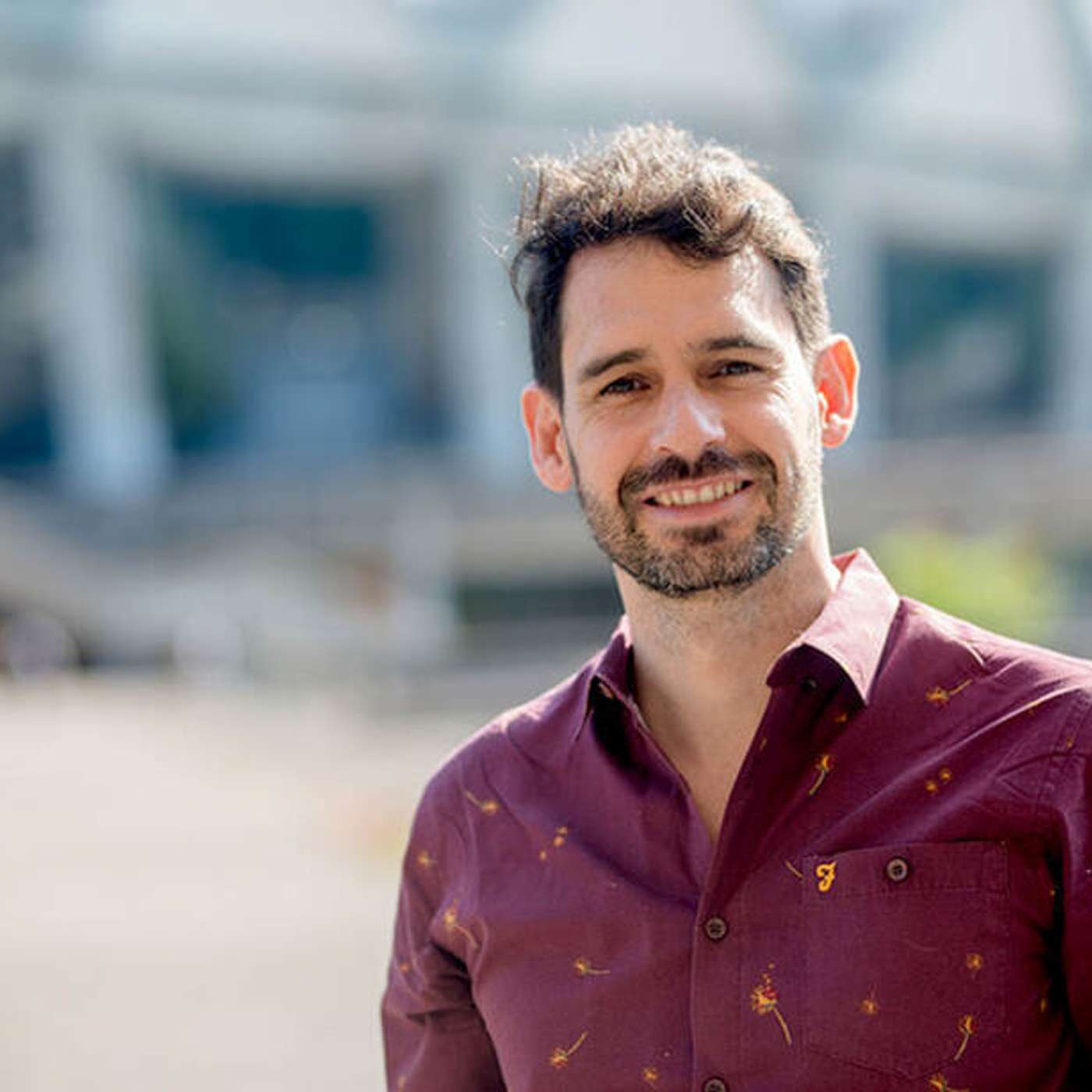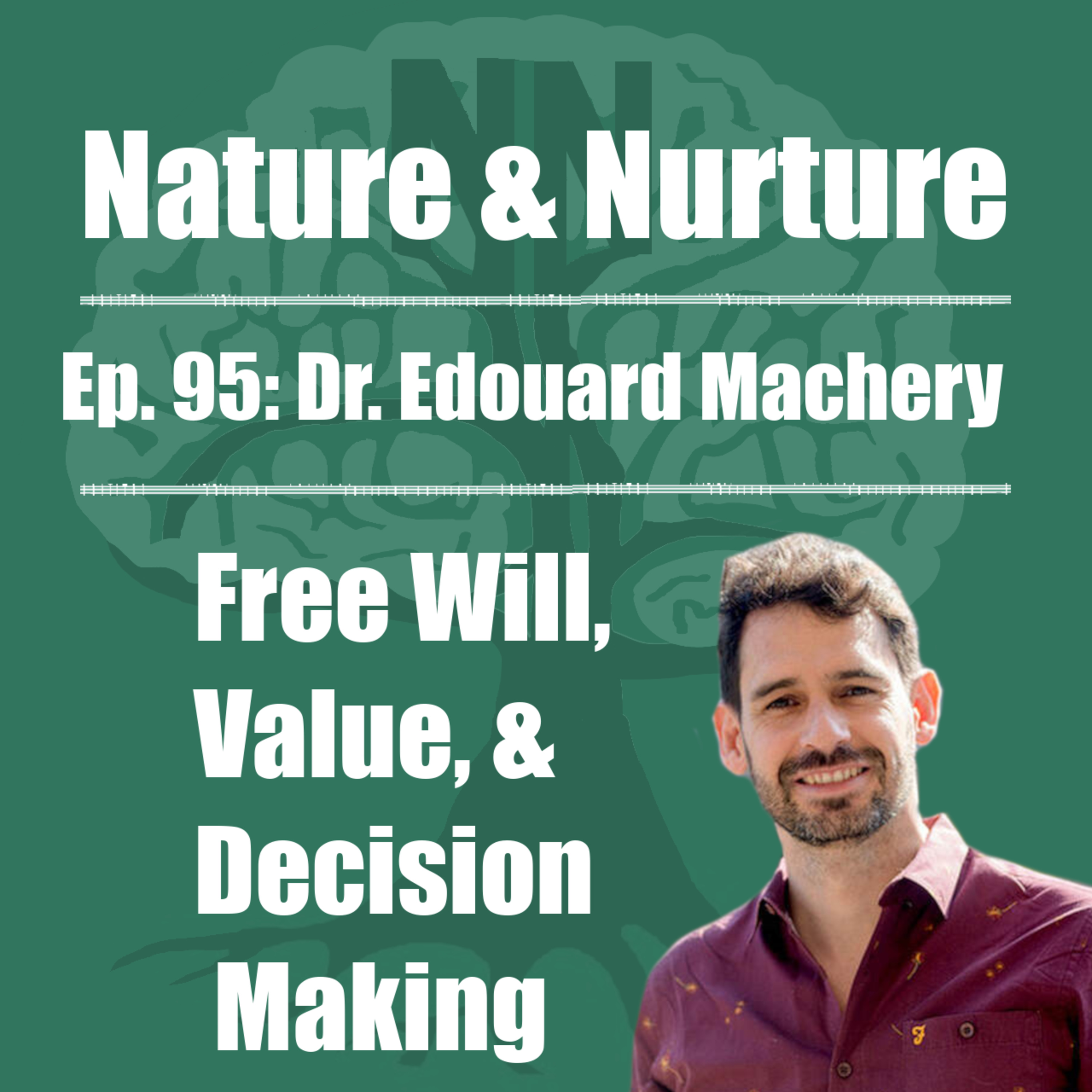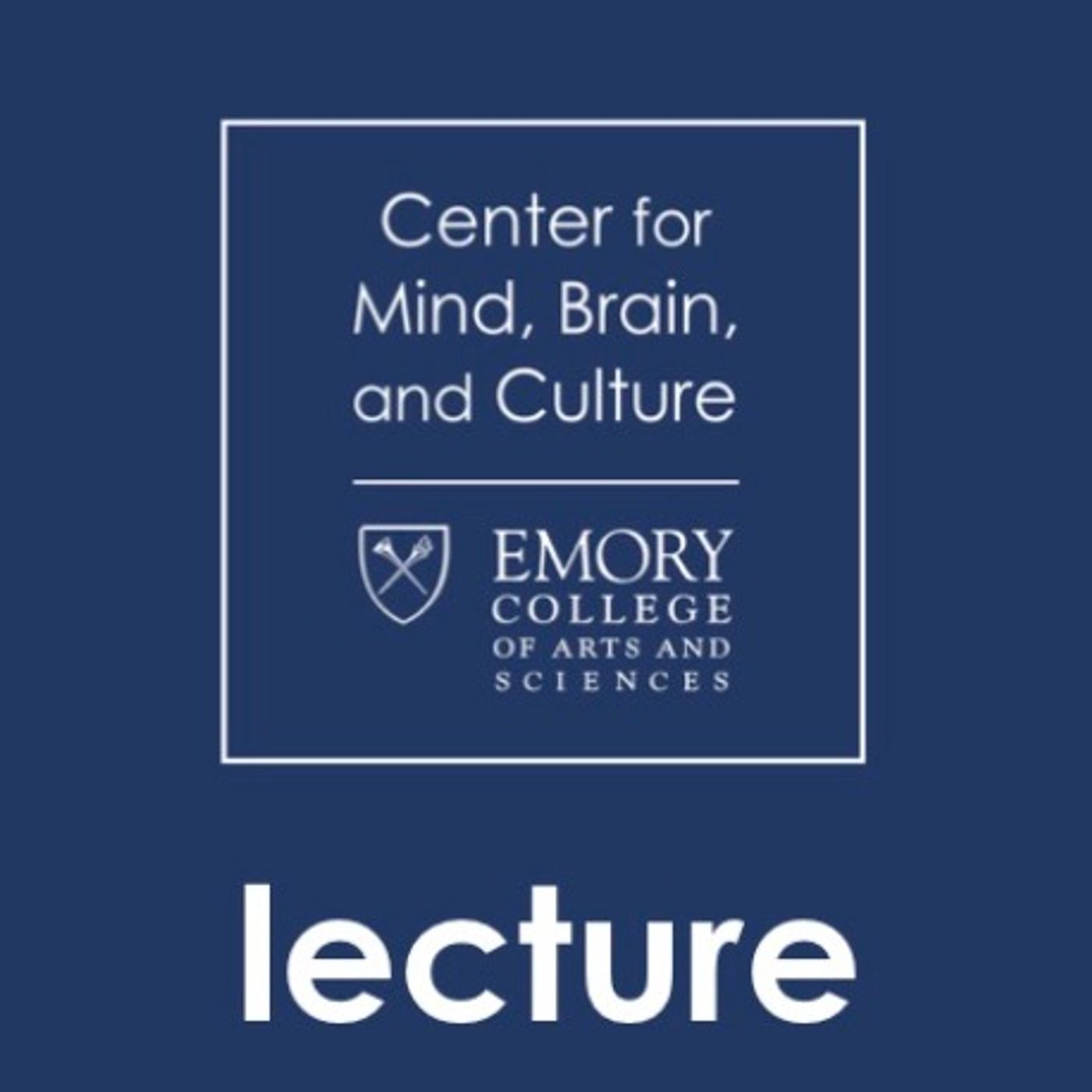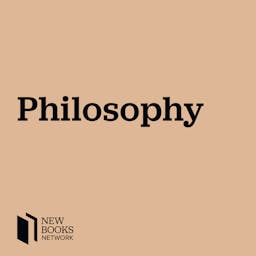Shows

Behind the StigmaIs Morality A Human Universal with Professor Edouard MacherySend us a textIn this episode, I speak with Professor Edouard Machery to explore experimental philosophy and the question of whether morality is truly universal. We discuss why humans need morals in the first place, why we often fail to live up to our own moral ideals. We also look at cross-cultural differences in moral judgments, the limits of relying on intuition in philosophy, and what new technologies like VR reveal about the gap between moral judgment and moral action. Timestamps added!About Edouard MacheryProfessor Machery is...
2025-11-2349 min
Philosophy BitesEdouard Machery on Variations in Responses to Thought ExperimentsPhilosophers who use thought experiments often believe their own intutions in response to them are unviersal. But that's not always so. In this episode of the Philosophy Bites podcast Edouard Machery discusses his research on this topic, and some of his surprising conclusions. This episode was made in association with the Institute of Philosophy and supported by the Ideas Workshop which is part of the Open Society Foundations
2025-11-0221 min
Crazy WisdomEpisode #477: Why Curiosity Isn’t Just a Virtue—It’s Our Oldest TechnologyIn this episode, Stewart Alsop speaks with Edouard Machery, Distinguished Professor at the University of Pittsburgh and Director of the Center for Philosophy of Science, about the deep cultural roots of question-asking and curiosity. From ancient Sumerian tablets to the philosophical legacies of Socrates and Descartes, the conversation spans how different civilizations have valued inquiry, the cross-cultural psychology of AI, and what makes humans unique in our drive to ask “why.” For more, explore Edouard’s work at www.edouardmachery.com.Check out this GPT we trained on the conversationTimestamps00:00 – 05:00 Origins of question...
2025-08-0454 min
Brain InspiredBI 213 Representations in Minds and BrainsSupport the show to get full episodes, full archive, and join the Discord community.
The Transmitter is an online publication that aims to deliver useful information, insights and tools to build bridges across neuroscience and advance research. Visit thetransmitter.org to explore the latest neuroscience news and perspectives, written by journalists and scientists.
Read more about our partnership.
Check out this series of essays about representations:
What are we talking about? Clarifying the fuzzy concept of representation in neuroscience and beyond
Sign up for Brain Inspired email alerts to b...
2025-06-042h 07
The HPS Podcast - Conversations from History, Philosophy and Social Studies of ScienceS4 Ep 5 - Edouard Machery on 'Experimental Philosophy'Today our guest presenter Thomas Spiteri is joined by Professor Edouard Machery, Distinguished Professor in the University of Pittsburgh’s HPS department and director of the Center for Philosophy of Science.Edouard, a leading figure in experimental philosophy (X-Phi), shares insights into the X-Phi movement, which integrates empirical methods into philosophical inquiry. He discusses the limitations of traditional philosophical methods, particularly the use of intuitions, and explains how X-Phi broadens the tools available to philosophers.Reflecting on the evolution of X-Phi, Edouard talks about its future direction and the need to balance empirical research with ph...
2024-10-1628 min
Mind-Body SolutionEdouard Machery: When does Science go Wrong? Issues with Common Sense & Folk Ideology🧠 Delve into the Frontiers of Experimental Philosophy with Prof Edouard Machery 📚
Welcome to our latest podcast episode, where we engage in a profound exploration of philosophy, consciousness, and free will with Edouard Machery, a distinguished French-American philosopher and Professor in the Department of History and Philosophy of Science at the University of Pittsburgh. 🌐
📘 In this enlightening conversation, we uncover the intricacies of experimental philosophy and consciousness, challenging traditional notions and exploring the intersection of philosophy and cognitive science. Join us as we navigate the landscape of experimental philosophy, discussing the characteristics of intuition, folk judgments about intentional action, and the broader...
2023-12-011h 05
Mind ChatMichelle Liu and Edouard Machery: Is the 'Hard Problem of Consciousness' Nonsense Invented by Philosophers?
Many philosophers worry about David Chalmers' 'hard problem' of how brains produce consciousness. But do ordinary people who haven't been exposed to the peculiarities of academic philosopher share Chalmers' intuition that there's a problem here? Professor Edouard Machery (University of Pittsburgh-Carnegie Mellon University) answers 'no.' Machery thinks the concept of 'phenomenal consciousness' that gives rise to these intuitions is an invention of academic philosophers, and he's built an empirical case to support his view, based on interviews with the general public. Dr Michelle Liu (University of Hertfordshire-Monash) has responded to the arguments of Machery and others, suggesting they...
2023-04-102h 09
The Nature & Nurture PodcastNature & Nurture #95: Dr. Edouard Machery - Free Will, Value, & Decision Making
Dr. Edouard Machery is a Distinguished Professor at the University of Pittsburgh and Director of the Center for Philosophy of Science. He's published over 150 articles and book chapters on a diverse range of topics including the philosophy of cognitive science, moral psychology, the utility of evolutionary theory and neuroscience for understanding cognition, folk psychology, and experimental philosophy.
In this wide-ranging episode we talk about Edouard’s research on cross-cultural differences in conceptions of free will and determinism, free will and moral responsibility, and how we define a rational agent. We also talk about neuropsychological research on...
2023-03-271h 04
Stanford Psychology Podcast89 - Edouard Machery: What Is a Replication? (REAIR)This week, we revisit one of our favorite episodes from last year (with improved audio quality!). In this episode, Anjie chats with Edouard Machery, a Distinguished Professor in the Department of History and Philosophy of Science at the University of Pittsburgh. He is also the Director of the Center for Philosophy of Science. Edouard's main research focuses on the intersection between cognitive science and philosophy. In this episode, Edouard shares his recent work on a topic that is extremely important for psychology today: replication. In an era of the replication crisis, it is more important than ever to understand t...
2023-03-2341 min
Stanford Psychology Podcast04 - Edouard Machery: What Is A Replication?In this episode, Anjie chats with Edouard Machery, a Distinguished Professor in the Department of History and Philosophy of Science at the University of Pittsburgh. He is also the Director of the Center for Philosophy of Science. Edouard's main research focuses on the intersection between cognitive science and philosophy. In this episode, Edouard shares his recent work on a topic that is extremely important for psychology today: replication. In an era of the replication crisis, it is more important than ever to understand the concept of replication. What are we really talking about when we are talking about replication...
2021-07-1741 min
Center for Mind, Brain, and CultureLecture | Edouard Machery | Religion and the Scope of MoralityAccording to Elliot Turiel, religious affiliation does not influence the distinction between so-called “moral" and “conventional” norms. By contrast, according to Jonathan Haidt, religious affiliation results in a broadened moral domain: As he puts it, “big gods have big moralities." This talk will present new data showing the limits of both Turiel's and Haidt’s views. The scope of the moral domain is neither fixed nor is simply broadened by religion. A more sophisticated understanding of the relation between religion and morality is thus called for. Intro Music: Small Acts of Devotion feat. Ashkay-Naresh
If you would...
2021-04-071h 12
Contemporary PhilosophyPhilosopher Edouard MacheryContemporary Philosophy: Global conversations
Hosted by John symons, Professor of Philosophy at the University of Kansas. In a conversation with Edouard Machery. An American philosopher, Distinguished Professor and Director of the Center for Philosophy of Science. And the author of Philosophy Within Its Proper Bounds, Doing Without Concepts and working on a new book on whether we should trust science. On this episode we'll discuss experimental philosophy.
2020-08-0900 min
Information EcosystemsEdouard MacheryThe interviewee in this episode is Dr. Edouard Machery. The interviewer is Sarah Reiff Conell. The website for the seminar can be found at https://infoecosystems.pitt.edu, where listeners can find a calendar of public events from September 2019 to May 2020. Our blog can be found at https://medium.com/information-ecosystems, and our Twitter account is @Info_Ecosystems. Dr. Machery's website is https://www.edouardmachery.com/. This episode was recorded on February 26, 2020. The podcast team includes Sarah Reiff Conell, Shack Hackney, Jane Rohrer, Erin O'Rourke, and Briana Wipf, along with support from the organizers and leadership team...
2020-05-0854 min
Embrace The VoidEV - 051 Talking With Stephen StichIn this episode we talk with Stephen Stich, a Philosophy professor at Rutgers University about his career, addressing moral/ethical issues in the classroom, and much more.Opening InvocationNorse MythologyInformation provide by Stephen Stich:Here is a link to our Templeton "Geography of Philosophy" Project website:https://www.geographyofphilosophy.com/And here's a link to a Templeton site based on an interview with my co-PI, Edouard Machery:https://www.templeton.org/grant/the-geography-of-philosophy-an-interdisciplinary-cross-cultural-exploration-of-universality-and-diversity-in-fundamental-philosophical-conceptsThere is more information on the book I was...
2018-07-131h 05
New Books in PhilosophyEdouard Machery, “Philosophy Within Proper Bounds” (Oxford UP, 2017)There are five people on the track and a runaway trolley that will hit them, and you are on a footbridge over the track with a large person whose body can stop the trolley in its tracks. Should you push the large person to his death to save the five on the track? Using hypothetical cases and questions about them to elicit judgments is a prominent method of analytic philosophy to discover modal or necessary truths – truths about what must be the case. The method is used to consider what action is right, whether free will requires the ability to...
2018-06-151h 05